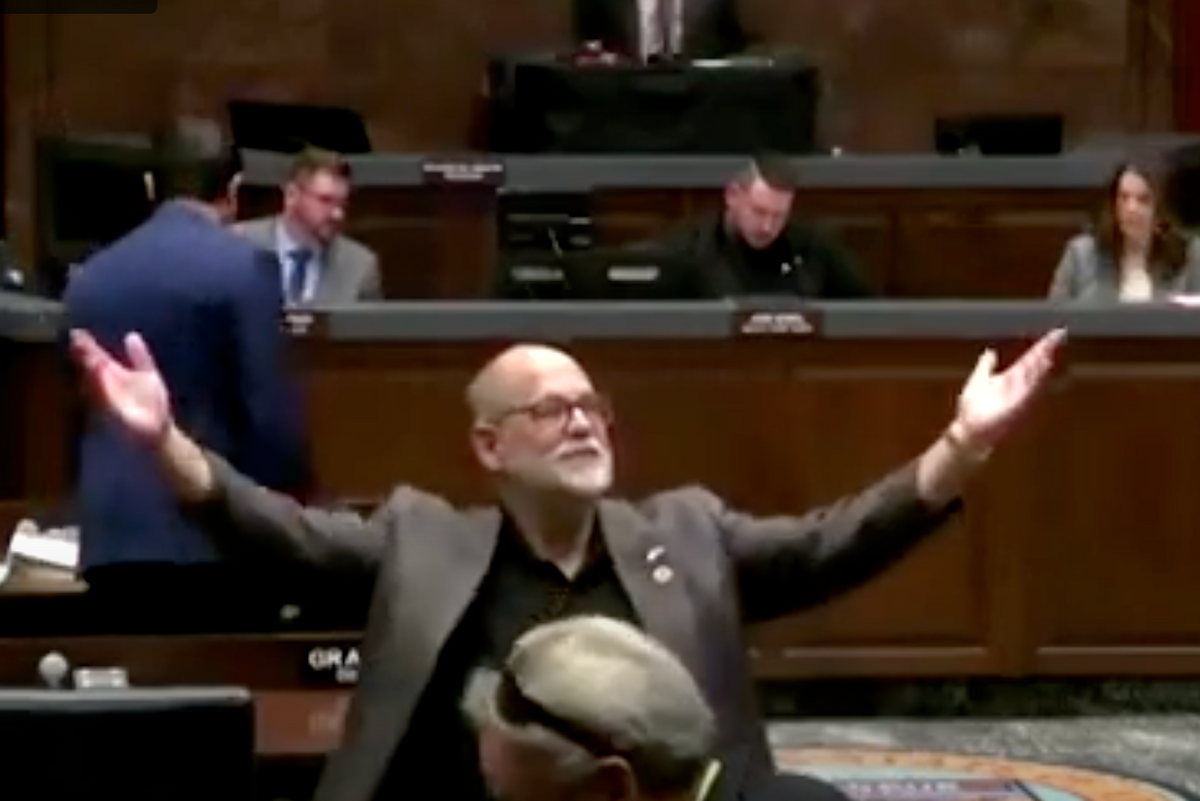Before I weigh in on the heart-stopping salary of Ohio State’s new football coach, let me tell you about the kids I met last Sunday evening.
You may have met them, too. Their names are Arielle and Austin Metzger, and they starred in a “60 Minutes” story by Scott Pelley.
Arielle is 15; her brother is 13. For the past five months, they’ve been living in a truck with their father, Tom. He is an out-of-work carpenter in Florida, where one-third of America’s homeless families without any kind of shelter live.
Pelley described how Arielle and Austin eat their meals out of cans, bathe in gas station bathrooms and spend their evenings in libraries — not just for the computers but also for the lights.
Pelley asked the children what it’s like to be a kid in America with no place to call home:
Arielle Metzger: It’s an adventure.
Austin Metzger: That’s how we see it.
Pelley: When kids at school ask you where you live, what do you tell them?
Austin Metzger: When they see the truck, they ask me if I live in it, and when I hesitate, they kind of realize. And they say they won’t tell anybody.
Arielle Metzger: Yeah, it’s not really that much of an embarrassment. I mean, it’s only life. You do what you need to do, right?
Ages 13 and 15, remember? Living in our America.
Pelley is one of the few journalists in the country regularly focusing on children living in poverty in this country. You can view his latest story online at http://tinyurl.com/kidsinpoverty.
I watched the interviews with Arielle and Austin Metzger at home on my TV. Two days later, my state’s largest university announced that Urban Meyer would be its new head football coach.
The details of his contract with Ohio State are breathtaking.
As has been widely reported, Meyer will get a $250,000 signing bonus and three retention bonuses — in 2014, 2016 and 2018 — for a total of $2.4 million.
That’s just for starters.
As The Plain Dealer in Cleveland reported, Meyer also can make as much as “$300,000 per year in bonuses for the academic achievement of his players; $50,000 for winning the Big Ten Leaders Division; $100,000 for winning a Big Ten title; $150,000 for any BCS bowl game; and $250,000 for the national title game.”
If he serves all six years of his contract, he’ll get at least $4.4 million a year. He’s also eligible for annual raises. To keep him happy, I guess.
I’m not immune from the excitement of OSU football. I never will be a member of the scarlet-and-gray cult, but I admit to attending a few OSU games with a goofy string of buckeyes around my neck. I enjoy how the city of Columbus swells into one giant campus during home games.
But this news, this salary, is an embarrassment for Ohio State. It’s also evidence of an ongoing tragedy for another group of kids in America.
In the cover story for the October issue of The Atlantic, Taylor Branch — a prominent civil rights historian — chronicled how student-athletes generate billions of dollars for universities and private companies while earning nothing for themselves.
As Branch pointed out, the Big Ten — which includes OSU — reaped $905 million last year alone from “a combination of ticket sales, concession sales, merchandise, licensing fees … and (mostly) television contracts.” The Southeastern Conference was the first to rake in more than $1 billion in such receipts.
“For all the outrage, the real scandal is not that students are getting illegally paid or recruited,” he wrote. “It’s that two of the noble principles on which the NCAA justifies its existence — ‘amateurism’ and the ‘student-athlete’ — are cynical hoaxes, legalistic confections propagated by the universities so they can exploit the skills and fame of young athletes. The tragedy at the heart of college sports is not that some college athletes are getting paid, but that more of them are not.”
Our children. They’re so expendable.
Meanwhile, in Florida’s Seminole County, Austin and Arielle Metzger are clinging to a dream.
Scott Pelley: I wonder what education means to you two.
Austin Metzger: It’s everything.
Arielle Metzger: It is everything to us. I plan to be a child defense lawyer. If I focus on my studies, I have that opportunity.
Question: How do we, as a country, justify paying one man more than $4 million a year to coach a public university’s football team, while 18 million children like Austin and Arielle live in poverty?
Answer: We can’t.
Connie Schultz is a Pulitzer Prize-winning columnist and an essayist for Parade magazine. She is the author of two books, including “…and His Lovely Wife,” which chronicled the successful race of her husband, Sherrod Brown, for the U.S. Senate. To find out more about Connie Schultz (con.schultz@yahoo.com) and read her past columns, please visit the Creators Syndicate Web page at www.creators.com.
COPYRIGHT 2011 CREATORS.COM


